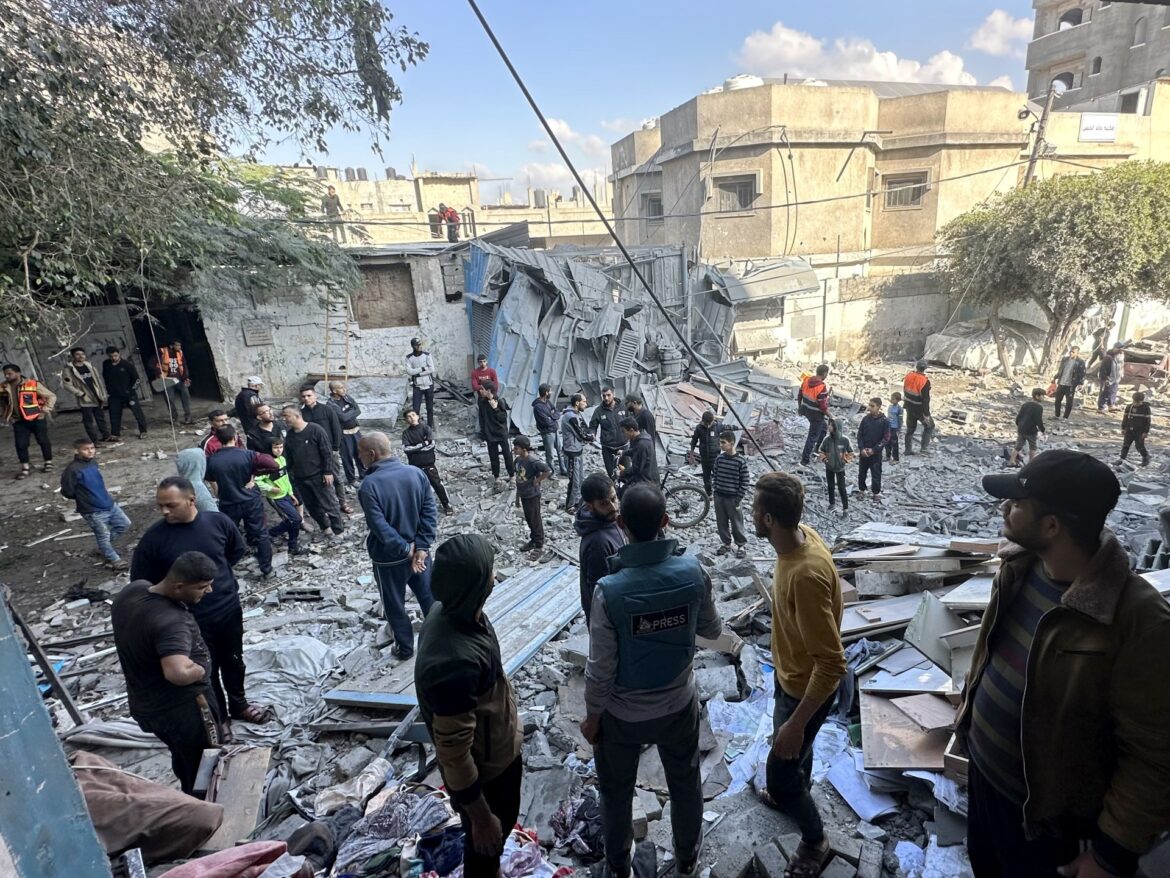8/12/2023–|Last updated: 12/8/202306:35 PM (Mecca time)
An article in the British newspaper “Financial Times” confirms that once the war began in Gaza, many of the hotspots of tension in the region became at risk of heating up, and the longer the war lasted, the more elusive peace became, and even in the absence of a large-scale escalation, what was possible a month ago, may have disappeared. It won’t be possible a month from now.
The author of the article, Kim Gattas, a fellow at the Columbia University Institute for World Policy, explains that the second phase of Israel’s war against Gaza brings with it more destruction and death to the Palestinians there, exposes the remaining Israeli detainees to great danger, and increases renewed risks to the broader Middle East.
Hazard of heating
He said that what is most worrying is that with the start of the war and entering its third month, many regional flashpoints are at risk of heating up, including those directly driven by the Palestinian-Israeli conflict. Such as: the West Bank, where it is feared that an intifada will break out with the increase in violence by Israeli settlers against Palestinians, and high tensions in East Jerusalem.
Among these hotspots, as the writer says, is what is driven by Iran’s need to maintain its credibility in defending the Palestinians. Iranian proxies across the region have increased the pressure. American forces in Iraq and Syria have faced more than 76 attacks since mid-October. The Houthis in Yemen fired missiles at Israel and attacked commercial ships in the Red Sea. The United States walked a fine line between deterrence and raising concern in Tehran about a broader strike.
The most urgent point
The writer emphasized that the most urgent flashpoint is the Lebanese-Israeli border, where Hezbollah is trying to do everything possible to show its support for Hamas without causing a major explosion between it and Israel. However, what Hezbollah is doing is still more than Israel can bear for a longer period.
Gatas continued to say that sudden escalation is still possible on all of these fronts. At the same time, the suffering in Gaza is beyond what can be tolerated, as United Nations Secretary-General António Guterres warned last Wednesday of “a catastrophe that may have irreversible effects on the Palestinians as a whole, and on peace and security in the region.”
Senior Israeli forces officials privately acknowledge that the final phase of the war, the attack on the city of Khan Yunis – the largest in southern Gaza and where the Hamas leadership is believed to be hiding – is likely to be the last large-scale ground offensive of the war.
While this does not mean that Israel will then agree to a ceasefire, it may allow operations to be reduced. The IDF could then move to a strategy of launching smaller raids on Hamas strongholds using mobile forces, rather than the current use of entire armored divisions occupying parts of the Gaza Strip for weeks.
Assessing that time was running out, the IDF escalated its attacks on the three remaining large concentrations of Hamas fighters, in the neighborhoods of Shujaiya and Jabalia in the north and the city of Khan Yunis in the south.



